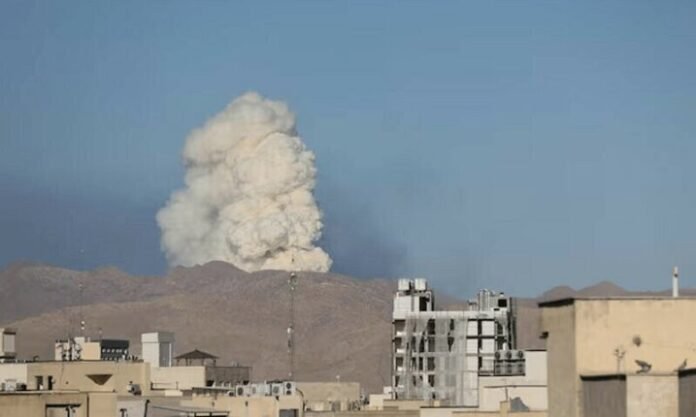In a dramatic escalation of the ongoing conflict between Israel and Iran, the United States has now openly joined the fight, carrying out targeted airstrikes on several key Iranian nuclear facilities. According to reports, American warplanes struck the Fordow, Natanz, and Isfahan nuclear sites overnight in what President Donald Trump has described as a “highly successful operation.”
President Trump took to his social media platform, Truth Social, to confirm the strikes. In his post, he declared that all American aircraft involved have safely exited Iranian airspace and are returning to their bases. He emphasized that Fordow, a heavily fortified underground site near the city of Qom, was the primary target and, according to him, has been “eliminated.”

“Our brave American pilots have accomplished what no other military could,” Trump wrote, adding that it is now time for peace and thanking the nation for its attention. He further announced he would address the American people in a live broadcast from the White House at 10 PM tonight to discuss the operation and its implications.
According to U.S. defense officials, stealth B-2 bombers were deployed in the overnight raids, specifically equipped with so-called “bunker buster” munitions designed to penetrate heavily reinforced underground facilities.
Residents in Qom reported hearing loud explosions on the outskirts of the city, with local Iranian media confirming that air defense systems around the Fordow plant were activated during the assault. Iranian state outlet Fars News noted that multiple blasts were heard roughly 87 miles south of Tehran, where the facility is hidden deep inside a mountain.
Political Reactions Stir Concerns of a Wider War
While President Trump and his supporters have hailed the strikes as decisive action, the move has sparked sharp criticism from within Washington. Democratic Congresswoman Sara Jacobs condemned the attack as unconstitutional and dangerously provocative, warning that it could drag the U.S. into a prolonged and costly conflict in the Middle East.
“This reckless escalation risks entangling America in yet another war that our people did not ask for,” Jacobs stated in response to the overnight news.
On the other hand, senior Republican Senator Lindsey Graham praised the operation as the right call, describing it as a demonstration of America’s unmatched air power. “This was necessary and sends a clear message,” Graham wrote on social media. “Our pilots and our Air Force are second to none.”
Former Israeli Defense Minister Backs Trump’s Decision
In Israel, reaction has been mostly supportive of Washington’s direct involvement. Yoav Gallant, Israel’s former Defense Minister—himself under scrutiny by the International Criminal Court for alleged war crimes in Gaza—called the attack a “bold and necessary step” that has made the world “a safer place.”
Background to a Coordinated Strike
Reports suggest that the strikes follow intense discussions between American and Israeli leaders. According to sources familiar with the matter, a high-level phone call last Thursday involved Israeli Prime Minister Benjamin Netanyahu, Defense Minister Israel Katz, and military chief Herzi Halevi. During the call, Israeli officials stressed that time was running out to neutralize Fordow, which lies deep underground and is notoriously difficult to destroy without advanced bunker-busting bombs—capabilities only the U.S. possesses.
Although some senior American officials, including Vice President JD Vance and Defense Secretary Pete Hegseth, reportedly voiced caution during the call, warning that direct intervention might pull the U.S. deeper into the conflict, the final decision was to proceed.
President Trump had previously argued publicly that Israel alone could not destroy Fordow due to its fortifications.
As of now, Iran’s government has not issued a formal response, but regional analysts warn that significant retaliation could be imminent, potentially widening the conflict far beyond the region.




